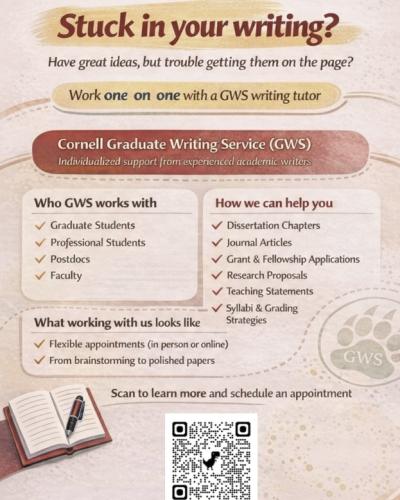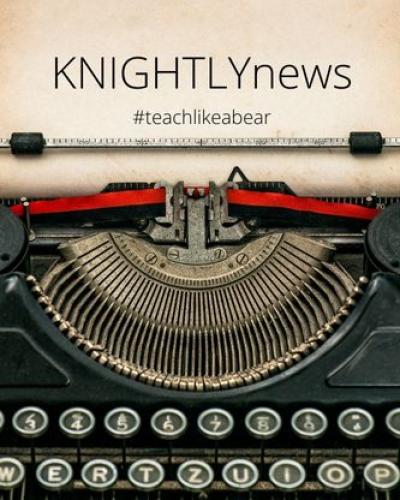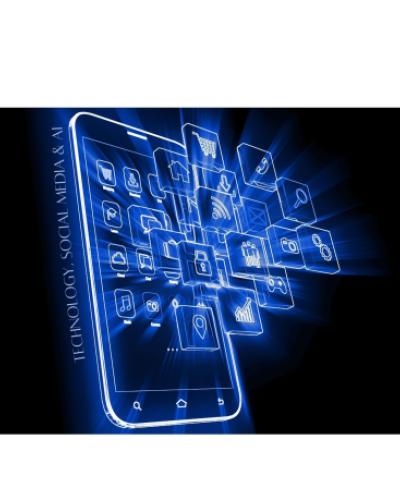This fall, students will research and write about topics related to technology, social media, and generative AI in these First-Year Writing Seminars:
ANTHROPOLOGY 1101 | Culture, Society, and Power: Culture on Tour (Connor Rechtzigel)
Why do we yearn to leave home and travel? What separates a tourist from a study abroad student—or even an anthropologist? In this class we will explore the construction and evolution of the “tourist mindset”, from armchair travel to contemporary Instagram travel influencing. Through reading ethnographic, literary, and theoretical texts, we will examine how tourism intersects with global power relations, and will also consider how tourism hosts have negotiated and controlled their encounters with guests. Course readings will cover multiple world regions and address topics such as commodification, marketing, and gender/sexuality. Students will gain insight into writing about the social world and about cultural objects like advertisements, films, and social media.
ARCHITECTURE 1901 | Diasporic Architectures and Environments (Priyanka Sen)
What defines “diaspora” and how does this discourse shape architecture and the environment? How might larger global issues such as climate change, human rights, migration patterns, and continued economic disparities contribute to forms of diaspora? How do these affect the built environment? In this course, we will examine these intertwined questions by studying a broad range of twentieth century global diasporic trajectories, focusing on themes like spatial representation, defining architectural sites as home(land), gendered migration, and diasporic connections to land. The course includes a wide selection of readings from architectural history, science and technology studies, environmental history, and gender studies, as well as other mediums including film and literature. Students will engage in diverse writing tasks including a film review, short narrative essays, and creative writing exercises.
ARCHITECTURE 1901 | Categorizing Architecture and the Making of the Other (Asya Uzmay)
What is Modern Architecture and why do we categorize buildings? In this class we will look at the ways in which empires, nation states, and international organizations used architecture (through style, form, climate, program, technologies, and materials) to define themselves as modern and progressing. To address racialized and Orientalized tropes in architectural knowledge production, we will ask how Modern Architecture employed difference to illustrate/construct itself. The course readings span genres of architectural history, the history of science and technology, feminist migration studies, literary criticism, and media studies. Throughout the semester, we will visit Cornell archives and exercise writing for different mediums: a book review, a short story, an op-ed, and a curatorial statement.
AFRICANA STUDIES AND RESEARCH CENTER 1825 | Educational Innovations in Africa and the African Diaspora (Ndri Assie-Lumumba)
An introductory interdisciplinary course focusing on Africa’s geographical, ecological, social, and demographic characteristics. It discusses African indigenous institutions and values, multiple cultural heritage of African, Islam, Western civilization, and emerging Asian/Chinese connections. Main historical developments and transition, the contemporary political, economic, educational, social and cultural change with technological factor will be analyzed. Africa’s ties with its diaspora with a focus on the United States (from the trans-Atlantic slave trade to the present) and the evolving Afropolitan factor, its impact on the emerging world order and its contribution to world civilization will also be explored.
COMPARATIVE LITERATURE 1104 | Reading Films (Amrita Chakraborty, Arash Shokrisaravi, and Song Han)
We live in an image-saturated world. How do we make sense of the moving image and its powerful roles in shaping culture and mediating our relationship with the world? This course will equip students with the tools to understand and decipher film language. It introduces and interrogates the basic notions, technologies, terminologies, and theories of film analysis. We will study visual and compositional elements, like mise-en-scène, cinematography, editing, and sound. Films we discuss will include different geographies, genres, major directors, schools, and film movements. Through writing students will learn to analyze films with accurate, medium-specific vocabulary, develop informed and nuanced arguments, and critically reflect on the position of the viewer.
ENGLISH 1111 | Writing Across Cultures: Technologies of Writing (Rayna Kalas)
In this seminar we will endeavor to be better writers by going straight to the source: by studying the different technologies of writing. As far back as Plato, writers and philosophers have expressed the concern that new forms of writing will affect how we think, remember, and communicate. How do the instruments and platforms of writing—from the pen to the personal computer, moveable type to HTML, paper to PowerPoint—shape the things we can say (for better and worse) and the environments in which we communicate? What about literary and rhetorical strategies: are they also “technologies”? We’ll ground our knowledge by reading about the history, philosophy, and poetics of different writing technologies. And we’ll also conduct experiments of our own in journaling, blogging, letter writing and fiction.
ENGLISH 1167 | Reading Now (Juan Pablo Albornoz Rodriguez, Jie Hui Zhou, and Lauryn Jones)
Reading is experiencing a new revolution in the twentieth and twenty-first centuries. We still read paper books, but we also read by scrolling on screen, through search engines, and in images and memes. What kinds of texts are emerging in this new era, and how do we read them? How do writing—and our ways of reading—connect with the urgent topics before us now: technology and social control, truth and media, climate change and apocalypse, identity, equality, and human rights? This course will examine the past twenty years of writing in a variety of genres, printed and/or online, from fiction to memoir to poetry and beyond. As we read, we will explore and discover the forms that our own writing can take in response.
ENGLISH 1168 | Cultural Studies: Trans Media (Richard Thomson)
This course examines the history of literature, film, visual art, and music by and about trans, nonbinary, and gender-nonconforming people. Students will explore how trans artists have expanded these media, developing new techniques to represent diverse experiences of embodiment. Works will include novels by Natalie Clifford Barney and Leslie Feinberg, poetry by Taylor Johnson, films by Toshio Matsumoto and Paul B. Preciado, photography by Claude Cahun, and music by SOPHIE. Tracking the shifts in trans aesthetics from the early twentieth century to the present, we will consider how these artists navigate the fixity and fluidity of gender, genre, and technology. Writing assignments will combine creative techniques with critical analysis, and students will conduct periodical and archival research that supports the recovery of trans cultural history.
ENGLISH 1270 | Writing About Literature: Novel Technologies (Anna Shechtman)
The history of communications technology is marked by momentous births and brutal deaths: “Television kills telephony,” James Joyce wrote in Finnegan’s Wake, fifty years before Video Killed the Radio Star. Since the early eighteenth century, the novel has both participated in and documented the history of technology, and this course pursues both aspects of the novel’s role in this trajectory. We will trace the novel’s rise—its emergence as a new technology—and follow its competition with, and assimilation of, other novelty forms, including cinema, television, the internet, and social media. Students will develop close reading skills and the ability to analyze and articulate innovative arguments, all while exploring the status of the novel's “novelty,” now that fiction proliferates across media forms and platforms. Does it, after all, still merit its name?
HISTORY 1200 | Modern Masculinities (Michael Miller)
Masculinity always seems to be in crisis, right? From the “Battle of the Sexes” to Joe Rogan, popular culture has analyzed problems with “masculinity” over and over again. This class will establish core academic skills that will aid students inside and outside of the classroom through reading and writing about global masculinities, from 1800 to the present. Students will read academic books and articles analyzing masculinities in history, in addition to consuming longform magazine profiles, prestige tv, podcasts, and social media posts for evidence and debates around masculinity today. Students will draft a variety of manuscripts, including fictional biographies, podcast scripts, and short-form video screenplays, all which will be assessed on the clarity of prose, articulation of argument and effective use of evidence.
PSYCHOLOGY 1140 | Make Gender with Words (Calen MacDonald)
Every day we practice language and gender, often in inevitable conversation with each other. Already, you are an expert on these topics insofar as they are fundamental to the twenty-first-century human experience. This course asks you to share your experience with and perspective on these important technologies. We will consider many often-contradictory perspectives from contemporary authors like Judith Butler and bell hooks as well as foundational-yet-controversial psychologists like Sigmund Freud and John Money. Class discussions will integrate these readings with personal experiences of language, gender, sex, and sexuality. Students will write and peer review seven short assignments, then synthesize their work into a final twelve-page research paper.
ROMANCE STUDIES 1102 | The Craft of Storytelling: Brevity from Boccaccio to ChatGPT (Nora Siena)
In a world awash with fast and small communication—news, texts, memes, TikToks, TV series—short forms shape our beliefs, opinions, and behaviors. Why are short forms so crucial in our world? Is brevity a byproduct of the digital age or a timeless device? This course delves into the evolution of short forms, their didactic and aesthetic functions, from medieval exempla to Instagram stories. We explore this enduring economy of words from La Fontaine's fables to Calvino's and Borges' experimental stories, analyzing comics, aphorisms, clinical reports, and dystopic series such as Black Mirror and Love, Death & Robots. Students will contribute to the syllabus by creating AI-assisted stories and will improve their critical writing and interpretative skills exploring the power and craft of the short form.
SCIENCE & TECHNOLOGY STUDIES 1126 | Science and Society: Controversies (Owen Marshall)
We generally think about science as a source of objective and dispassionate knowledge, in spite of the fact that scientists often vehemently disagree with each other. By looking at a wide range of current and historical scientific controversies, we can get a better understanding of how science actually gets done. Students will develop their rhetorical and critical thinking skills by reading, thinking, and writing about instances of contestation in scientific, medical, and engineering knowledge. Cases will range widely, from cold fusion to nutritional science. Through extensive written coursework, students will learn to identify, conceptually unpack, and persuasively deploy the various forms of argumentation through which contentious scientific and technological issues are socially negotiated.
SCIENCE & TECHNOLOGY STUDIES 1126 | Social Studies of Medicine (Ashawari Chaudhuri)
This course introduces students to the ways in which medical practice, the medical profession, and medical technology are embedded in society and culture. We will start the course with exploring how medicine conceptualizes bodies and how medical language is infused with metaphors. We will then discuss the social construction of physical and mental illnesses, ranging from anorexia nervosa, cancer to disability and COVID. We will focus on how medicine is connected to various socio-cultural factors such as gender, social class, race and others. Students will be able to read and identify other people’s arguments and how they support them, and eventually develop their own arguments and use evidence to build them. Writing assignments will include illness diaries, essays, research paper, and an art project.
WRITING 1370 | Elements of Academic Writing: Gaming with the Greeks and Rolling with the Romans (Belisarius Welgan)
How is the mythology and culture of the ancient Greeks and Romans portrayed in video games? What do we know about the games played in Classical antiquity? In this writing course we will explore and analyze depictions of Greco-Roman culture in video games such as God of War, Assassin’s Creed Odyssey, Hades I & II, and others, and consider how these adaptations relate and transform the ancient originals to modern sensibilities of story-telling and technological optimization within the genre of gaming. Alongside these modern games, we will also play a number of reconstructed ancient games and consider the historical role of playing games, as a social or solitary pastime, as gambling or sport, and we will explore elements of early game theory. We will practice reading, writing, discussing media, and analyzing evidence. Join this course to study the essential elements of academic writing and to learn flexible and sustainable strategies for producing interesting, clear, and precise academic prose that can address a variety of audiences and meet diverse rhetorical aims. Writing 1370/80 is a smaller FWS (capped at 12 students) that spends more time navigating the steps in the writing process in order to respond to each student’s individual needs and build confidence and reflective practice. As in all FWSs, students practice higher-order thinking, close reading, and analyzing evidence. They also complete 4-5 major writing assignments. This course places greater emphasis on in-class writing, one-on-one conferences with the teacher, peer workshopping, discussion, and learning to talk about how different types of writing work. Students will deeply engage diverse course materials (journalism, scholarly articles, podcasts, films, etc.) on topics like art, literature, and relevant social issues to explore ideas about a text, write for specific audiences, and develop creativity, style and voice.
WRITING 1370 | Elements of Academic Writing: Writing and Artificial Intelligence (Kate Navickas)
What does it mean to write and be a writer in an era of generative A.I. writing tools? What are the ethical considerations of using A.I. to write? How does A.I. affect higher education and learning experiences? To answer these questions, we will read recent work on the intersections of writing, education, and A.I.; experiment with A.I. writing tools and reflect on these experiences; and develop researched arguments and writing philosophies that emerge from this work. Join this course to study the essential elements of academic writing and to learn flexible and sustainable strategies for producing interesting, clear, and precise academic prose that can address a variety of audiences and meet diverse rhetorical aims. Writing 1370/80 is a smaller FWS (capped at 12 students) that spends more time navigating the steps in the writing process in order to respond to each student’s individual needs and build confidence and reflective practice. As in all FWSs, students practice higher-order thinking, close reading, and analyzing evidence. They also complete 4-5 major writing assignments. This course places greater emphasis on in-class writing, one-on-one conferences with the teacher, peer workshopping, discussion, and learning to talk about how different types of writing work. Students will deeply engage diverse course materials (journalism, scholarly articles, podcasts, films, etc.) on topics like art, literature, and relevant social issues to explore ideas about a text, write for specific audiences, and develop creativity, style and voice.





